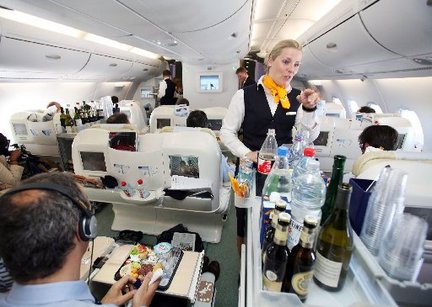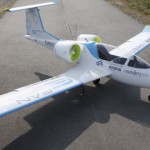Aviation community demands action on alcohol to combat increase in ‘air rage’
“In a small metal tube 12,000 metres above the Earth no-one can help you,” said Martina Benkova, a Slovakian flight attendant who is now training crew in dealing with disruptive travellers. She was opening Dispax World, a conference held at Heathrow aimed at reducing the risks from unruly passengers – and crew.
The extent of in-flight disruption is increasing, according to the conference organiser, Philip Baum: “It is affecting 300-400 flights a week.” And the evidence at the conference is that alcohol is at the root of many potentially dangerous “air rage” incidents.
Problems begin on the ground, said Ms Benkova: “Ground staff don’t care if people are drinking at the airport – they just want to get rid of the problem.”
Carol Michel, a US lawyer representing airlines, said: “In Las Vegas, I see passengers wheel-chaired up to the door of the aircraft, because they’re too drunk to walk. I don’t think the bars and restaurants have any idea they are endangering the safety of that flight.”
But an aviation medicine specialist countered the widely held belief that drink has a heightened effect when flying. “It’s an urban myth that flying exacerbates the effect of alcohol. At cabin altitude there is no effect,” said Professor Michael Bagshaw from King’s College. However, he said some passengers who are fearful of flying are likely to turn to drink or drugs. He urged cabin crew to “avoid patronising or heavy-handed confrontation, and allow petty infractions to pass unchallenged.”
The desire for a cheap flight could be one reason for the rise in air rage, according to Professor Tom Baum of Strathclyde University: “The enthusiasm to get the cheapest possible flight to Australia means that people aren’t taking a stopover as they used to. If you’re at the end of your 24-hour tether, good behaviour can go out the window.” He said that changing social attitudes also had an effect: “It’s not just alcohol – people’s expectations of entitlement puts a lot of pressure on front-line staff.”
Professor Baum said the best way to prevent disruptive incidents was to talk to passengers: “Give space and time to engage with them. Rage is much less likely with your ‘friend’ than with an anonymous uniform.”
Rebekah Tanti-Dougall, a lawyer from Malta, condemned the lack of resolve among airlines to prosecute “air rage” offenders – choosing instead just to give them a written warning. “Any passenger who poses any threat should not be treated lightly.”




Leave a Reply
Want to join the discussion?Feel free to contribute!